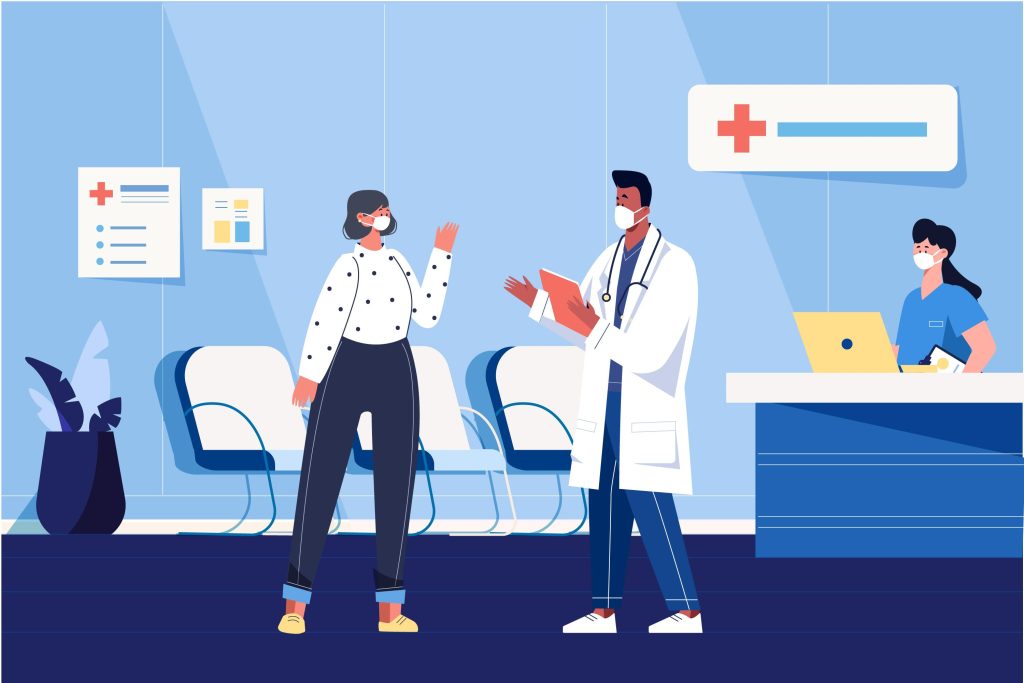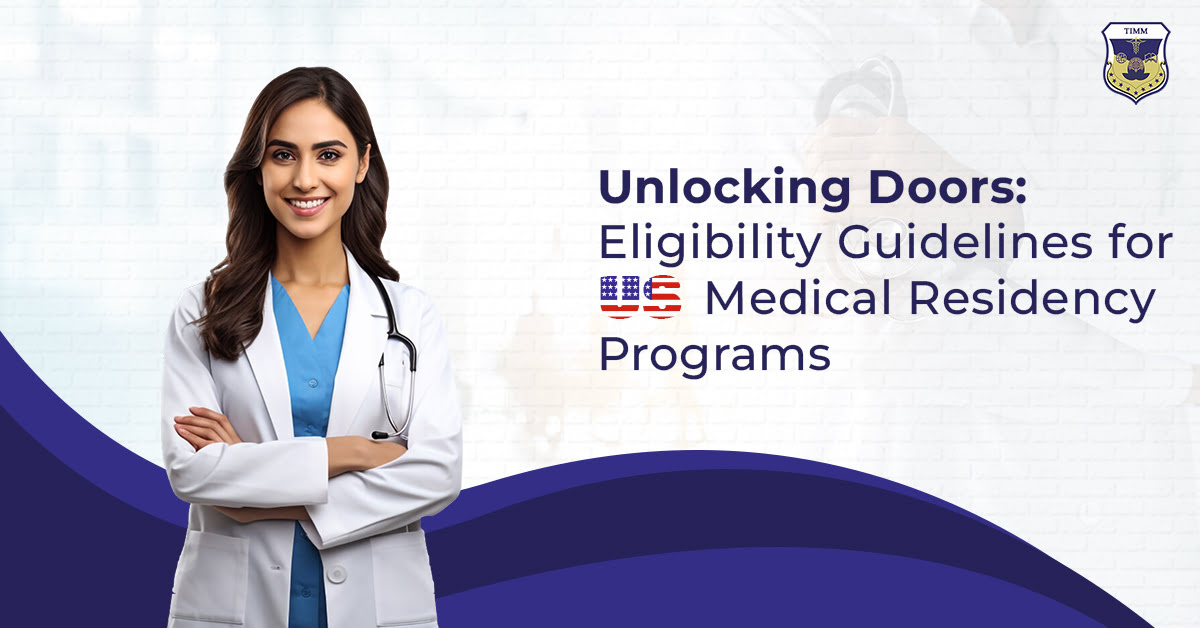Blog Summary
Understanding U.S. Medical Residency Programs
Medical residency programs in the United States serve an essential role in developing the careers of future physicians. These programs provide practical training and clinical experience, which is required to become a qualified practitioner. The residency curriculum involves rotations in various medical disciplines, including internal medicine, surgery, and paediatrics. During residency, physicians-in-training work closely with experienced practitioners, gaining hands-on experience in patient care, diagnostic procedures, treatment planning, and surgical techniques.
The structured curriculum combines clinical rotations, didactic sessions, and research opportunities to ensure comprehensive learning. The residency in USA program provides a supportive environment where residents receive supervision, mentorship, and constructive feedback to enhance their clinical abilities and decision-making skills. As they progress through the program, residents gradually assume greater responsibility, culminating in the ability to manage complex cases independently.
Residency in USA Application Requirements
Do you want to pursue Medical residency programs in the United States?
Discover the crucial application requirements to pave the way to your American dream. The residency application process requires excellent attention to detail, and understanding the requirements is critical for a successful submission.

To begin your journey, you must have valid documentation. Gather your academic credentials, letters of recommendation, and a well-written personal statement emphasizing your interests and qualifications. Meeting standardized test requirements, such as the USMLE for medical professionals, is critical to obtaining a seat.
Financial documentation is another critical component demonstrating your ability to support yourself during residency. Ensuring all required forms are correctly filled makes navigating the complex visa application procedure more accessible.
Importance of Clinical Rotations in the USA
Clinical rotations are a crucial component of medical education in the USA, providing students with hands-on experience in various healthcare settings. Through these rotations, aspiring healthcare professionals can apply theoretical knowledge to real-world situations, making them invaluable opportunities to refine clinical skills and develop critical thinking abilities under the guidance of seasoned mentors.
During the clinical program, students gain exposure to a diverse patient population and encounter various medical conditions and treatment approaches. This immersive learning experience fosters empathy, cultural competence, and practical communication skills essential for providing high-quality patient care.
Moreover, it allows students to explore different specialities, helping them clarify their career interests and goals. By rotating through internal medicine, surgery, paediatrics, and obstetrics/gynaecology, students can make informed decisions about their future specializations.
Participating in clinical rotations in the USA offers aspiring healthcare professionals invaluable hands-on experience and exposure to diverse patient populations, ultimately refining their clinical skills and aiding in the exploration of various medical specialities.
Special Considerations for International Applicants
Are you an international student looking to apply to universities abroad?
Navigating the application procedure can be challenging, so don’t be nervous! Here’s a thorough guide designed specifically for you. Several special considerations must be addressed for international applicants seeking university admission or job opportunities abroad.
First, it’s important to understand language standards, as schools and employers often require proficiency in the language of teaching or business. Standardized exams, such as the TOEFL or IELTS, are commonly used to measure talent.
Second, visa rules differ in each nation, requiring accurate analysis and follow-up on visa processes.
Furthermore, cultural differences can affect the application process and interactions with potential companies or academic institutions. Understanding cultural norms and expectations can significantly increase one’s chances of success.
Finally, financial concerns such as tuition, living expenses, and scholarships should be studied and planned.

Understanding these nuances enables you to navigate the process confidently, increasing your chances of success. Remember to arrange financial considerations such as tuition and living expenses meticulously. This information aims to empower you by providing a smooth and informed application process as you pursue your academic and professional goals in a new and exciting environment.
Tips for a Successful Residency Interview
Are you preparing for a residency interview?
Unlock success with these essential tips. From researching the program to practising communication skills, we’ve covered you for interview success.
Research Interviewers: Learn about the interviewees’ backgrounds and research interests to build a connection with them.
Practice Mock Interviews: Practice mock interviews with others in your field to improve your responses and confidence.
Research FAQ: Prepare for frequent interview questions to make clear, decisive responses.
Examine Personal Statement: Ensure your statement is consistent with your interview responses and showcases your talents.
Stay Updated on Healthcare Trends: Stay informed about current healthcare issues, advancements, and trends relevant to the speciality.
Practice Communication Skills: Practice active listening, maintain eye contact and articulate responses.
Conclude with! : Send a thank-you message or email to convey thanks. And you are reiterating your interest in the program.
These guidelines address various topics for effectively preparing for and managing a residency interview.
Reasons to Consider TEMS for Residency in USA
Conclusion
Commencing the journey towards U.S. medical residency programs entails grasping a thorough understanding of the application process, encompassing critical elements like clinical rotations, considerations for international applicants, and strategies for successful residency interviews.
With this knowledge, aspiring physicians can navigate the intricacies of the residency journey with confidence and clarity. It’s crucial to emphasize the importance of meticulous planning, thorough preparation, and a genuine passion for medicine in achieving success. As you embark on this path, Remember that although difficulties are unavoidable, they also present chances for growth and learning. Stay resilient, persevere through obstacles, and steadfastly commit to your goals.
With commitment and determination, you can open the door to a rewarding career in the constantly changing field. Landscape of healthcare, making a meaningful impact in the lives of patients and communities through your journey in Medical Residency Programs.


